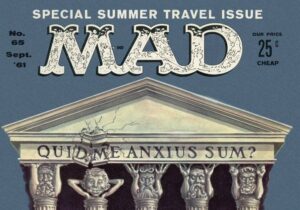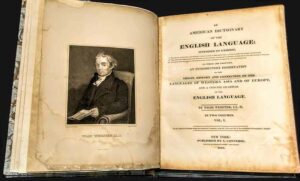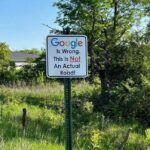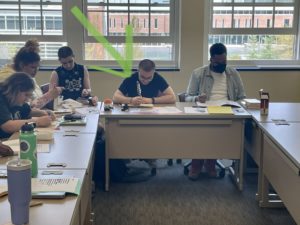Word is 40
I know of no one who says that Microsoft Word is the best word processing product. I have friends who  claimed that WordPerfect 5 was and is the best. (My favorite, Interleaf, was made by the company of the same name. The company failed to take personal computers seriously as an emerging market. Both product and company were left on the side of the road in the late 90s.)
claimed that WordPerfect 5 was and is the best. (My favorite, Interleaf, was made by the company of the same name. The company failed to take personal computers seriously as an emerging market. Both product and company were left on the side of the road in the late 90s.)
Word is the thing that nearly everyone uses, and few people love, the product so deeply associated with Microsoft and yet wasn’t even first released on Windows. In
October 1983, Microsoft released a big floppy disk containing its word processing software for installation on the Xenix operating system, a version of the UNIX operating system that ran on personal computers, and on MS-DOS.  Microsoft brought Word to Apple’s Macintosh computers. The Word for Windows didn’t reach the market until 1989.
Microsoft brought Word to Apple’s Macintosh computers. The Word for Windows didn’t reach the market until 1989.
Two score years later, nearly one billion people use Word each day. We can only imagine the number of illegally obtained copies of Word in use.
Word has helped to make English a global language. Further, its automatic correction features have degraded our spelling and language skills. We don’t see and learn from our spelling mistakes or our mismatched subjects and verbs. Word takes care of it so we don”t have to. Plato complained that writing would degrade our memories. Imagine his screams if he learned what has happened
Today I Learned (TIL)
 An unknown Babylonian discovered Pythagoras’s Theorem 1000 years before Pythagoras. While Pythagoras can be credited with being the world’s first known mathematician, proclaiming that “Numbers rule the universe,” new archeological findings show the way that Babylonians divided land equally.
An unknown Babylonian discovered Pythagoras’s Theorem 1000 years before Pythagoras. While Pythagoras can be credited with being the world’s first known mathematician, proclaiming that “Numbers rule the universe,” new archeological findings show the way that Babylonians divided land equally. Your government at work. First of all, did you know that there is a federal apple division? In 1887, the U.S. Department of Agriculture Division of Pomology commissioned paintings of the known apples and other fruits. The project continued until 1942. You can explore the more than 7500 watercolors on the USDA website. FWIW, my favorite apple is the Roxbury Russet.
Your government at work. First of all, did you know that there is a federal apple division? In 1887, the U.S. Department of Agriculture Division of Pomology commissioned paintings of the known apples and other fruits. The project continued until 1942. You can explore the more than 7500 watercolors on the USDA website. FWIW, my favorite apple is the Roxbury Russet.
 I took three years of Latin in high school. Although I did pick up a few things that have helped me, mostly what I remember are semper ube sub ube and
I took three years of Latin in high school. Although I did pick up a few things that have helped me, mostly what I remember are semper ube sub ube and  n the mid-1930s, my father bought an acre of land on the shore of Queen Lake in Phillipston. The property was one of several parcels in the cove that had been used by a man as a woodlot for his furniture manufacturing business in a neighboring town. The factory owner was sick and needed money for his medical treatments. (The owner died in 1942.)
n the mid-1930s, my father bought an acre of land on the shore of Queen Lake in Phillipston. The property was one of several parcels in the cove that had been used by a man as a woodlot for his furniture manufacturing business in a neighboring town. The factory owner was sick and needed money for his medical treatments. (The owner died in 1942.)  A few years ago, we read about a German artist who,
A few years ago, we read about a German artist who, 

